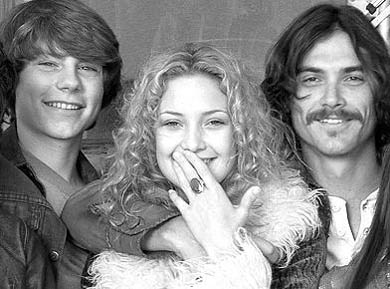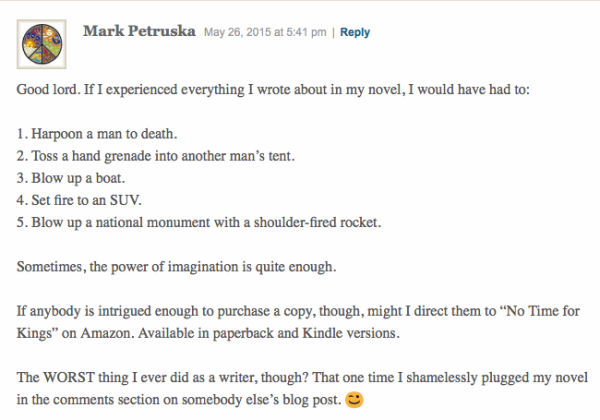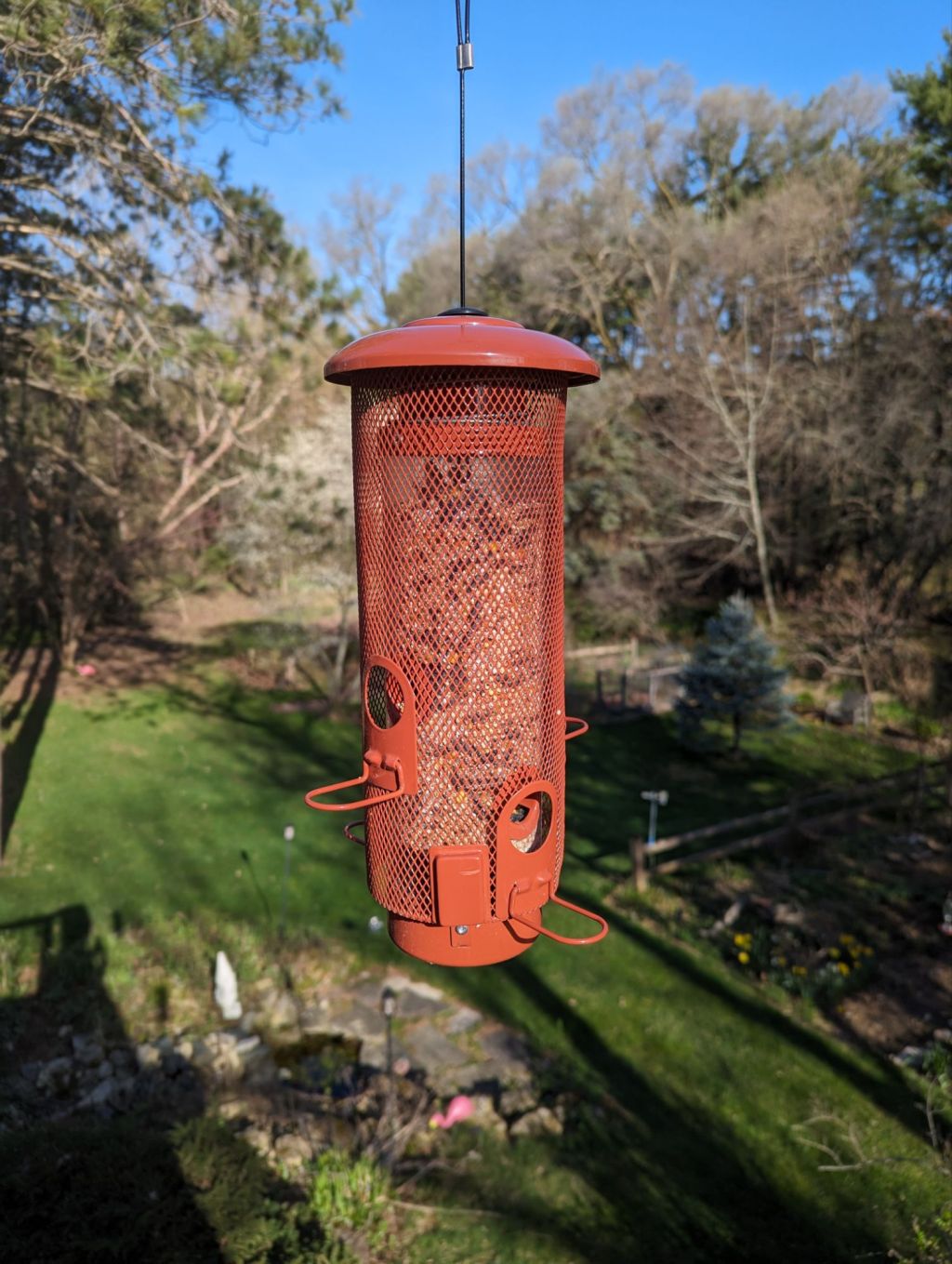Earlier in the week, I came across an interesting and thought provoking blog post by a longtime favorite, Jess Witkins. Jess is currently working on a book of her own, and talked about the worst thing she ever did as a writer. If you don’t feel like following the link, I’ll “out” her for you: Jess once cheated on a boyfriend, all in the name of her craft.
She explains her actions thusly:
I truly believed, in the deep down pit of my soul, that I did what I did because I thought it would make me a better writer…I believed the only way I could write like all these other authors I loved was to “experience everything.”
I am not condoning her actions – but I am not condemning them, either. I kind of get it. Many people misguidedly believe you need to experience the things you write about in order to do so convincingly. There’s an excellent scene in Cameron Crowe’s Almost Famous that addresses this; a young journalist is interviewing a rock ‘n roll star and asks,
Do you have to be depressed to write a sad song? Do you have to be in love to write a love song? Is a song better when it really happened to you?
Ooh. Those are deep questions…
Which, unfortunately, are never answered in the movie. It didn’t take me long to respond to Jess’s post (below), but her question weighed on me afterwards for quite some time. I came to realize the answer isn’t as black and white as I’d first thought.
Obviously, I am not going to kill anybody in order to know what that feels like. I’m pretty sure Stephen King never broke down a hotel room door with a hatchet when researching “The Shining,” and it’s doubtful Michael Crichton actually reanimated a dinosaur when penning “Jurassic Park” (but, how cool would it be if he had!).
Smaller details, however? I think immersing yourself in the experience does help. I’ve had a bacon maple bar or two from Voodoo Doughnut in my lifetime – a place that plays a minor role in my book. I know the layout of the joint, and exactly how airy and delicious that first bite is…how the maple icing sticks to the roof of the mouth while the savoriness of the bacon cuts through the sticky sweetness, and…
DAMN YOU, diabetes!
So, my point is, I can see it both ways. The most important trait a writer needs (besides the ability to write) is a good imagination. Experience can help round out the details, perhaps – but I don’t think you have to cheat on somebody in order to find out it’s wrong, or that it leads to a whole bunch of bad things, like guilt and hurt and insecurity. Jess closes by saying,
I often wonder if the life lesson overall wasn’t worth it. I learned what it means to hurt someone, I learned what it means to be hurt by a friend. I don’t think it helped me with craft or editing, but it helped remind me I’m human. I will make mistakes – foolish ones I won’t believe I did. But I will try better next time.
Tough way to learn a lesson, that’s for sure. But a great way to turn a negative into a positive.
I would love to hear what other writers think about the question posed here. Or what anybody thinks, really. Even if you’ve never commented before, go ahead and share your thoughts if you are so inclined.
And here’s that link to my novel, No Time For Kings. It’s not all about murder and mayhem. There is love and hope and optimism, too. And some mighty tasty doughnuts…






Leave a comment